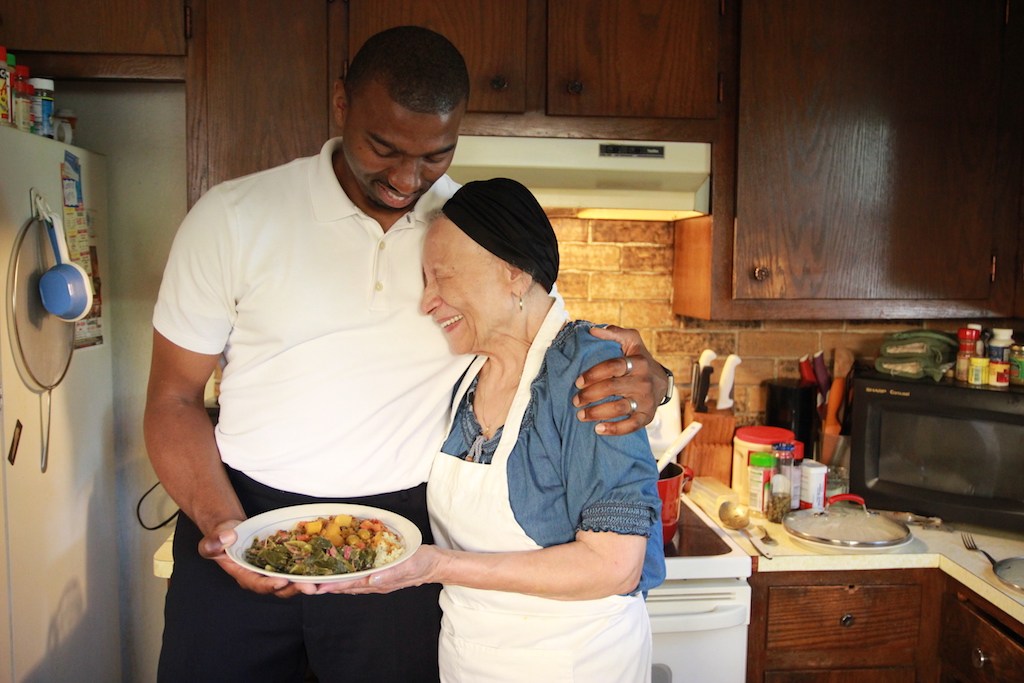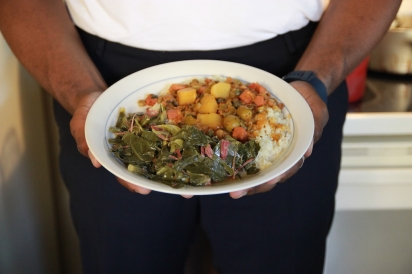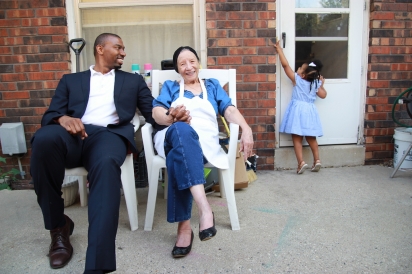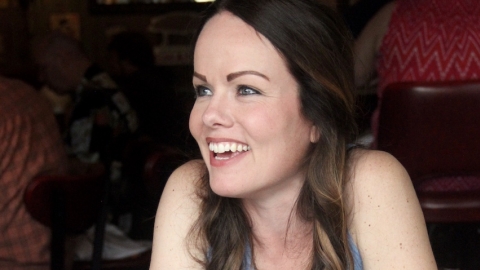Artist Eats with Kennita Hickman: Bobby Drake
“There’s definitely a black ceiling for Milwaukee creatives. After you’ve performed at all the venues, you have to start another project just to become stalled in the place.”
It’s a jarring truth for artists of urban genres in Milwaukee.
Bobby and I had discussed this before in private settings. Our talks always centered around art, entrepreneurship, culture and progress; the idea of truly living your best life by living off your art and the possibility of such in Milwaukee.
Certainly, we know the statistics. Milwaukee has topped lists in recent years as one of the more segregated cities in the country. The loss of industrial jobs decades ago aided in the loss of economic stability in communities of color.
As millennials become the largest demographic in the workforce, Milwaukee is changing. There are more young professional organizations committed to retaining talent of color. And now, the Fizerv Forum (the new Milwaukee Bucks arena) will look to become an entertainment culture hub for Milwaukee, which will be great for National touring acts. Time will tell how this fares for independent talents in Milwaukee, especially talent that lies in urban genres like Bobby Drake. More on that in a moment.
Our interview drifted from his patio (a convening spot aptly known as Brown Cafe) to his Abuela’s (Spanish for “Grandma”) home 2 doors down. The premise of this interview was to explore the duality of his cultural comfort foods.
Initially, we wanted to visit a soul food restaurant and an authentic Puerto Rican restaurant. His abuela had a better idea. She graciously offered to prepare a meal that offered a taste of both worlds. We feasted on collard greens with smoked meat and arroz con gandules y jamon. (Abuela later joined us for homemade chocolate chip cookies, ice cream and rum.)
On first glance, this idea felt disjointed. How did collard greens and arroz con gandules work together as a meal? The link was that Puerto Rican cuisine is a hybrid of African (via slave trade), Taino Natives and Spanish culture.
Arroz con gandules is a combination of rice, pigeon peas and pork, typically served with pernil (roasted pork). It’s a main staple on Puerto Rican cuisine typically served at large family and holiday gatherings. Abuela used jamon (ham) and added potatoes.
Collard greens are also mainstays in what’s defined as soul food (deep southern cooking). Collards are also one of the foods African Americans eat at New Year's celebrations to bring prosperity into the year. Often used as a side dish and served against meat dishes as the star, this menu used meat as accent pieces. Genius.
This interview would mark both firsts and lasts of sorts. He told me he rarely discusses his Puerto Rican heritage in public spaces. He finds it difficult to explain to people.
“I’m not fluent in Spanish, so there’s that discussion of how can one identify as Hispanic. There’s also some colorism issues too. So it’s just easier not to discuss though I’m very much so Puerto Rican and very much so Black.”
That same discussion was had as it relates to Spoken Word vs rap. He abhors being asked ‘What’s the difference between spoken word and hip hop’?
It’s hard to define, especially for people outside the culture. It could be rap. It could also be poetry. For the purpose of this article, Spoken Word can be thought of as on the spectrum between poetry and hip hop.
There was a moment of pensive articulation as Bobby offered introspective context on his career. There was an air of finality of that life chapter as he spoke. Truth is, his passion for club gigs had long left. The problems he once voiced through poetry had been resolved and he knew it. He’s a man who had made peace with the need to let go, even if his fans weren’t ready.
Years ago, he was the obvious heir apparent to poets like Dasha Kelly and Kwabena Nixon (legends in the Spoken Word/Poetry sphere).
His recognizable baritone made him perfect for hosting events and voiceover work (including Black Nouveau). His ability to move crowds with call and response chants which are more suited to hip hop than poetry, created various lanes for him to perform.
He was the next big thing.
And then in 2015, he created the KingMaker workshop series for “creative-preneurs.” These classes were specifically designed for musicians, visual artists and those whom needed to monetize their skillsets. Shortly after that series ended, he started performing living room tours for his one man show, “Never Say Die.” This type of forward thinking was rarely seen in Milwaukee’s creative space: the ability to create opportunities and migrate into spaces where affluence followed. It was the ultimate come-up celebrated in hip hop music. Or, so it seemed.
So, it came as a shock when Bobby Drake announced his final Milwaukee performance at UW-Milwaukee’s Lyrical Sanctuary, earlier this year.
He had hit his ceiling.
As we paused between plates of arroz con gandules and greens, there was a hint of sadness in Bobby’s voice. He mentioned that he always creates music, albeit for personal consumption. The KingMaker series for creative-preneurs is on hold as well.
“As a spoken word artist, I could go national. That requires money and more connections. Or, I could go the corporate/non-profit route, teach workshops. That option didn’t appeal to me. After a while, I had to assess. I have a wife and a child. I need to be able to provide first and foremost.”








